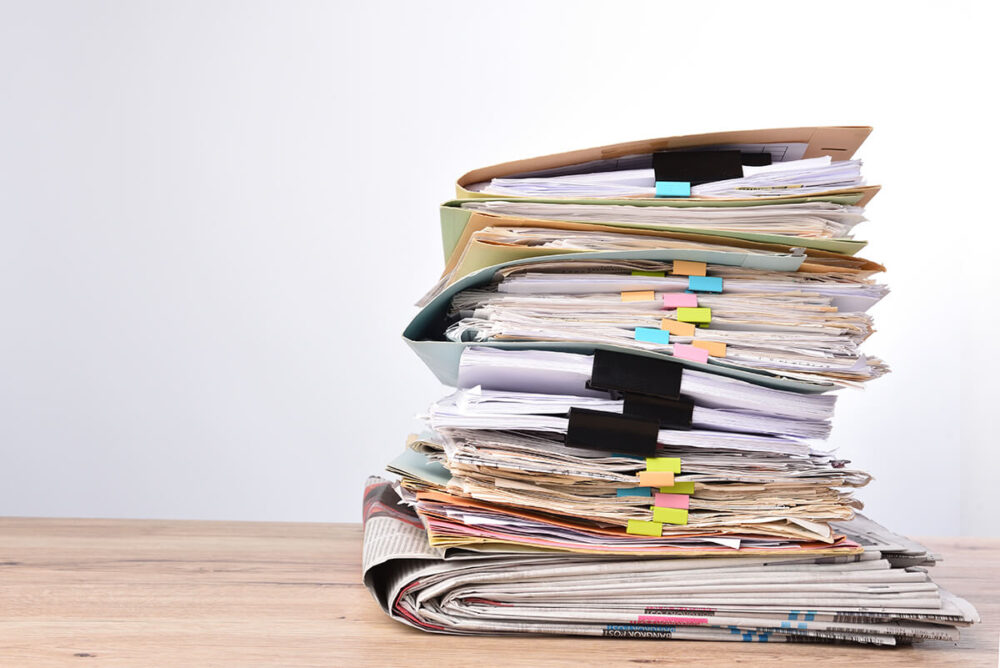Moving to a new home can be pretty intimidating because there’s so much to think through. However, the more you understand the relocation process and responsibilities behind it, the less stressful it would be. It’s well-known that the majority is scared of making any life changes, let alone replanting roots altogether in a day or two. That’s why we’ve rounded up some of the most helpful tips for you, to serve you as a recipe for an easy transition.

#1 Call Professional Cross-Country Movers to Help You Out
Convincing friends and family to help you isn’t as fun as you may think it is. However, planning a going-away party is something you should count them in while carefully searching for professionals to handle your belongings. Even large families have a hard time dealing with all the aspects of moving by themselves, and you can only imagine how challenging it can be if you decide to relocate to another state alone.
The struggles are many, but luckily, choosing to hire an experienced long-distance moving company promises a wide range of long-distance moving services at your disposal. Whether it’s moving insurance that you’re looking for or the best way to ship your car, with relocation professionals by your side, a stress-free relocation is guaranteed.
Consider the Storage Space
Here’s vital to remind you not to underestimate the size of your move and to think about the storage service you might need, too. Renting a safe and secure self-storage unit as a separate service is also possible with reputable cross-country movers. When looking for a way to move to a new house, but there are some belongings that you want to keep – even though you might not necessarily need them – storage is undoubtedly the best option.

#2 Plan Your Budget Way Ahead and Be Ready to Spend Some More
If you wonder what is the first thing to do when moving into a new house, taking care of your relocation budget is definitely on the priority list. Not taking enough time to consider all the costs you might have can quickly turn the whole process into a mess. So, creating a budget template to track down all the expenses is always a good way to make quick calculations and further decisions.
Whether it’s about smaller ones, like spending money on the items from your new apartment checklist or those more serious such as paying professional long-distance movers and typing them, get ready for swiping your credit card quite often the first few days.

#3 Master Your Packing Process When Moving to a New Home so You Can Unpack Like a Pro
A smart approach to a packing process is all you need to get ready for the big day. Don’t try to figure out what’s the right moment to start boxing your place up because starting as early as possible is the only correct answer out there.
For starters, you can learn how to avoid procrastination and create an inventory list. By breaking it into categories, you’ll grasp the condition of your belongings before the move and quickly identify what to pack first. One of the best packing tips is not to forget the items from your attic, basement, and garage since these are usually already packed away.
If you can’t remember what’s inside the boxes, go through them and eliminate the stuff you don’t want anymore. One of the relocation hacks you can use, too, is to box up your possessions strategically. Go room by room and pack the items you use the least.
Buy Quality Packing Materials
Since packing is known as the most laborious relocation phase, getting hold of the quality packing material is something you can’t do without if your goal is to have your belongings safe down the road. When it comes to what to buy when moving into a new home, here’s a short rundown of must-haves:
- Different-sized cardboard boxes
- Specialty packs for your more vulnerable items
- Wrapping materials (bubble wrap, plastic wrap, packing paper, foam cushioning, etc.)
- Quality tape
- Markers
Take some time to look for free cardboard boxes because many local stores would give them away. Also, it’s good to know there are plenty of alternatives to packing paper and other padding materials, most of which you could probably find at your place. Towels, sheets, pillows, or any soft materials will do. Packing fragile items can be nerve-racking, particularly boxing up your glasses, not to mention prepping the plates. However, having the suitable materials on hand will be a piece of cake.
Declutter Before Moving Home
Being aware of it or not, each place at some point becomes storage for godforsaken, damaged, or expired stuff. There’s nothing strange about accumulating unnecessary stuff over the years, but not getting rid of them would be rather odd since doing it saves your time, space, and money.
By figuring out where to donate clothes for those in need or maybe give away the toys your kids decided to leave behind is only one of the possible ways to move efficiently. Whatever your solution is, reducing your belongings will prove beneficial when preparing once the pick-up day finally arrives.
Tips on How to Label Your Boxes
Sure, unpredictable things can happen during a move, yet again, there are a few you can certainly anticipate and prevent from happening. Not labeling your household goods is undoubtedly one of them. People usually decide to rely on their memory, but they forget they’re dealing with an endeavor of a great magnitude.
So, it’s no wonder at all if you can’t recall the contents of the boxes once you start unpacking, no matter how hard you try. To avoid situations like this one and to save yourself a headache, label all your stuff meticulously.

#4 Update Your House Address
When relocating, there are many places to go and many phone calls to make to be sure you updated your address properly. It’s a necessary part of a successful relocation process, and, in some cases, changing your address is even a legal requirement. Depending on the state, you’re given 30-90 days to do it when it comes to your ID and driver’s license.
As for the others (USPS, your health care providers, bank and credit card companies, insurance companies, social security administration), informing them in a timely manner will help you relocate hassle-free and leave you with a great deal of time to settle down. Also, if you want to keep scrolling and shopping online like you used to, remember to switch your address in the shopping details given.

#5 Gather Important Documents
Forgetting the smallest detail can sometimes be a cause of a major problem. That’s precisely why relocation is one of the most arduous processes you’ll go through in life. Paying attention to each aspect equally is the only way to have peace of mind once you settle in.
It’s vital to bring necessary documentation with you because it’s one of the most common things you forget to do when relocating. If you’re not sure what are those exactly, here’s a list to help you out:
- Personal documentation,
- Financial records,
- Property-related documents,
- Medical records (If relocating with pets, take care of their medical history, too.),
- School records, in case you’re relocating with kids.

#6 Don’t Forget to Set Up Utilities
Arranging utilities is one of the basic things to do when moving into a new home if you want it functional once you finally move in. Reach out to electric, gas, water, heating, and garbage pick-up service providers to discuss the best date for setting them up, as well as canceling them at your old place.
Don’t forget to schedule cable and internet installation appointments, too, since they may require extra time to adjust everything and rerouting cords to a modem. Preparing for an appointment is quite simple, and it’s helpful to both parties. Just call your provider and ask about materials needed so that you can obtain them in advance.
Also, if there’s anything you’re not sure about, like cable outlet accessibility, this is a perfect moment to ask about it, too.

#7 Change Your Locks
Contemplating a number of people that might have the keys to your apartment is not the most pleasant thought to occupy your mind. Even when you’re not worried about it, having a fresh start usually means having new locks.
So, call a locksmith and schedule a lock changing appointment because you know what they say – better be safe than sorry. Also, it’s both quicker and more affordable to prepare the keys and the locks beforehand in a shop. Needless to say, if you know how to DIY, get the tools!
If you’re interested in learning more about switching out locks by yourself, click on the video below.
#8 Best Time for a Deep-Clean
If you are still wondering what to do when moving into a new home, deep-cleaning is the answer. We understand you might be exhausted by now. However, it’s one of the last things to check out.
Settling down before giving a space a thorough cleaning is not possible, no matter if you’re relocating into a brand new apartment or an established home. You’ll face dirt, dust, and debris in both. There’s no big philosophy behind cleaning an apartment. Just find some quality cleaning gloves, get a mop, and you’re good to go.
With some basic cleaning supplies and disinfectants, you’ll make your house shine. Still, if you find yourself too tired to tidy up after all you’ve already done, there are some pretty good professional cleaning services to consider.
Check for Damages and Repairs Needed When Moving to a New Home
While going through the cleaning process, it will be easy to identify damages or items that might need minor repairs. For example, changing out filters to improve the air in your house is an affordable fix that will mean a world of difference to you. The same goes for repainting your walls and doors according to your style. These are quite simple tasks, which you can even do by yourself.

#9 Focus On Post-Move Activities
A fresh start is not always that fresh, and it usually means waiting on the scheduled repairs, appointments, deliveries, all the while you’re unpacking tons of boxes while tiredness is taking over. Yet again, post-move activities are essential for the adjusting period, because they are your opportunity to make yourself comfortable at an entirely unfamiliar place.
To navigate this process successfully, take a break from anything that might slow you down even more than feeling exhausted. If you’re trying to get a job in a new city, or there is one waiting for you already, let it all wait until you settle in.

#10 Meet Your Neighbors
Take a deep breath and start making friends in a new city right away. Meeting your neighbors might be a bit uncomfortable, but it’s also one of the things to do after relocating. It’s not like you have to knock on their doors and introduce yourself. Being friendly when running into them is just enough. And it’s helpful because they are your closest people right now, and getting to know them will mean the world to you since that neighborhood is your home now.

May the Force Be With You
As funny as it sounds, even wondering what is the luckiest day to move into your new house isn’t such an absurd question after all. Apparently, if you want to settle down sometime soon, you’ll have to skip Fridays. And rainy days. Do not by any chances lift a finger then, god forbid any of your boxes. On the other hand, Thursdays seem nice. According to those who are relocating often, it is believed they are the luckiest of all the days of the week.
Sure, being guided by common moving superstitions is a terrible idea. However, increasing your chances to have a bit of luck down the road – well, why not? However, do not wait for things to happen to you. Roll up your sleeves, take our tips and make them happen.





